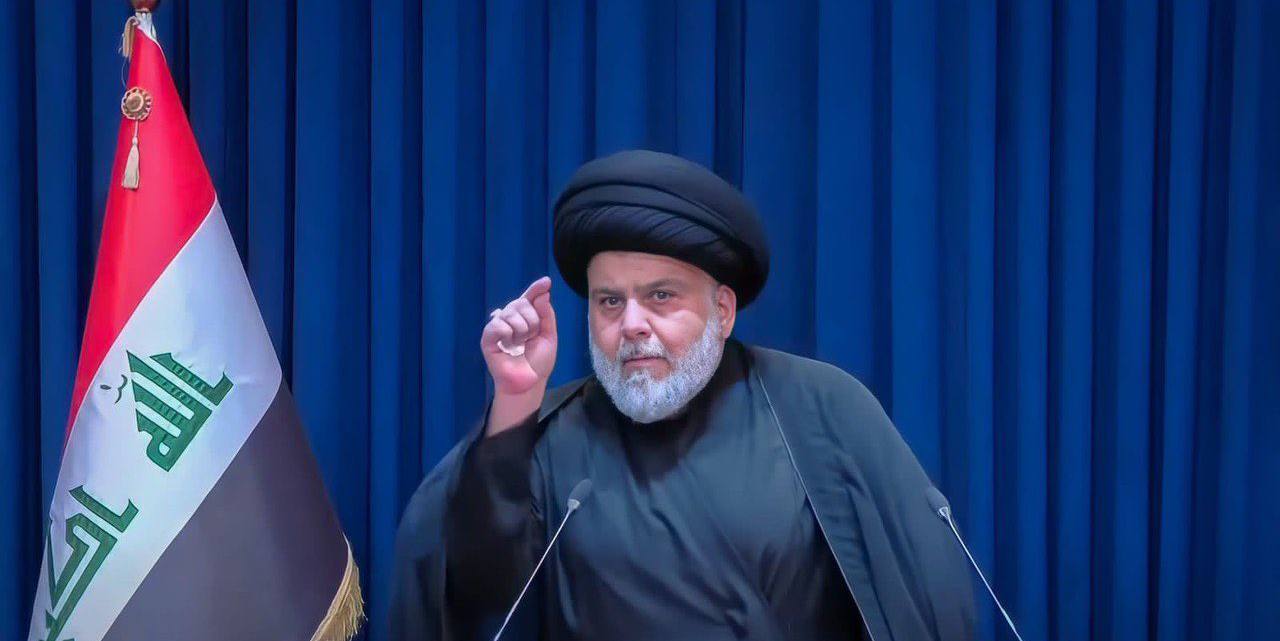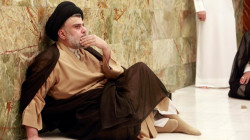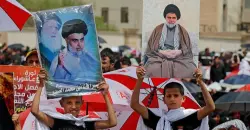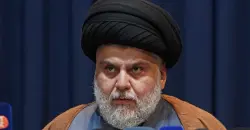Al-Sadr denounces the "Mu'awiya vs Abu Lu'lu'a" saga, calls for banning both shows

Shafaq News/ Iraqi Shiite cleric and politician Muqtada al-Sadr has warned against airing series on Mu'awiya and Abu Lu'lu'a, likely in anticipation of a glorification of their deeds.
Many Shiite Muslims denounce Mu'awiya and his Umayyad successors (661-750) as divisive, alleging that they acted against Caliph Ali bin Abi Talib (656-61) and other figures who Shiites revere. The series will likely also spark reactions for featuring the faces of the Prophet's Companions, which both Shiite and Sunni religious authorities reject.
Saudi-based media conglomerate Middle East Broadcasting Center (MBC)—including MBC Iraq—is expected to air "Mu'awiya'' in the upcoming Islamic lunar month of Ramadhan.
In response, Shiite TV-channels announced it will be airing a series pertaining to the life of Abu Lu'lu'a Nahavandi, another controversial figure in the Islamic history who is known for killing the second Rashidun Caliph Omar Ebn Khattab.
Without naming MBC, al-Sadr on Feb. 21 took to Twitter to describe those who "broadcast false historical series" as "masters of sectarianism".
The jab came after the Iraqi cleric on Feb. 14 explicitly urged the Saudi-owned network to refrain from airing "Mu'awiya", describing the Caliph as "the figurehead of strife" who "caused disunity within Islam".
A majority of Iraqis are Shiite Muslims who see Ali bin Abi Talib, his sons Hassan (624-70) and Hussein (626-80) and their descendants as the rightful heirs of Prophet Muhammad. Before even being aired, "Mu'awiya" has sparked controversy as most Shiites view the Umayyads as undermining Ali and the killers of Hassan and Hussein in 670 and 680 respectively.
Sadr on Feb. 21 further stated that broadcasting the show "goes against the new moderate policies adopted by the brotherly Kingdom of Saudi Arabia".
The Iraqi cleric's remarks have fueled an ongoing debate over the series on Iraqi social media.
Al-Sadr, when asked by a group of "Muslim youth" about the "Mu'awiya vs Abu Lu'lu'a" saga, said that both series are "vanity and provoke strife".
"It is not within the ethical principles of Shia Islam to respond to sin and wrongdoing with a similar sin and wrongdoing," he said.





